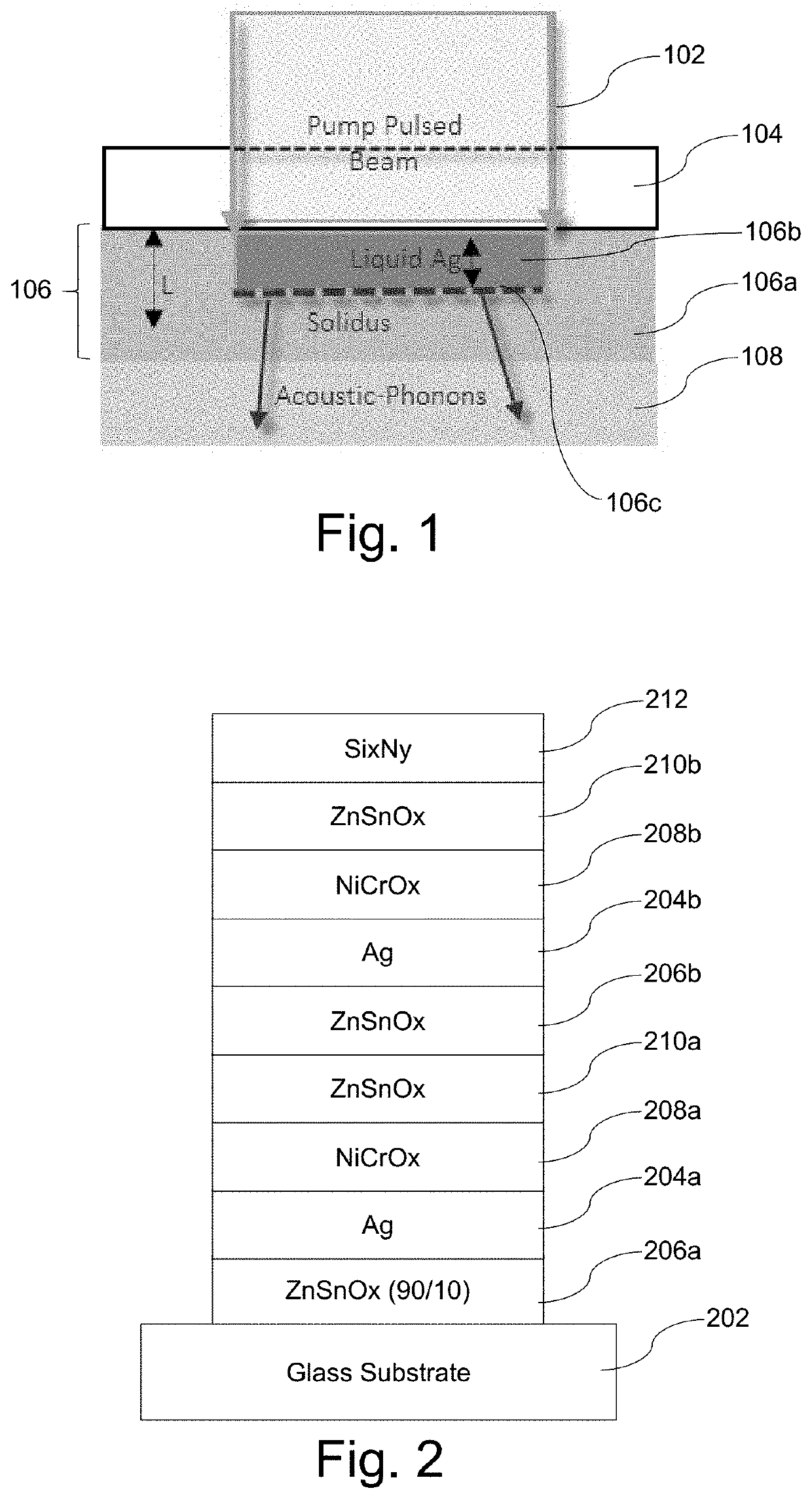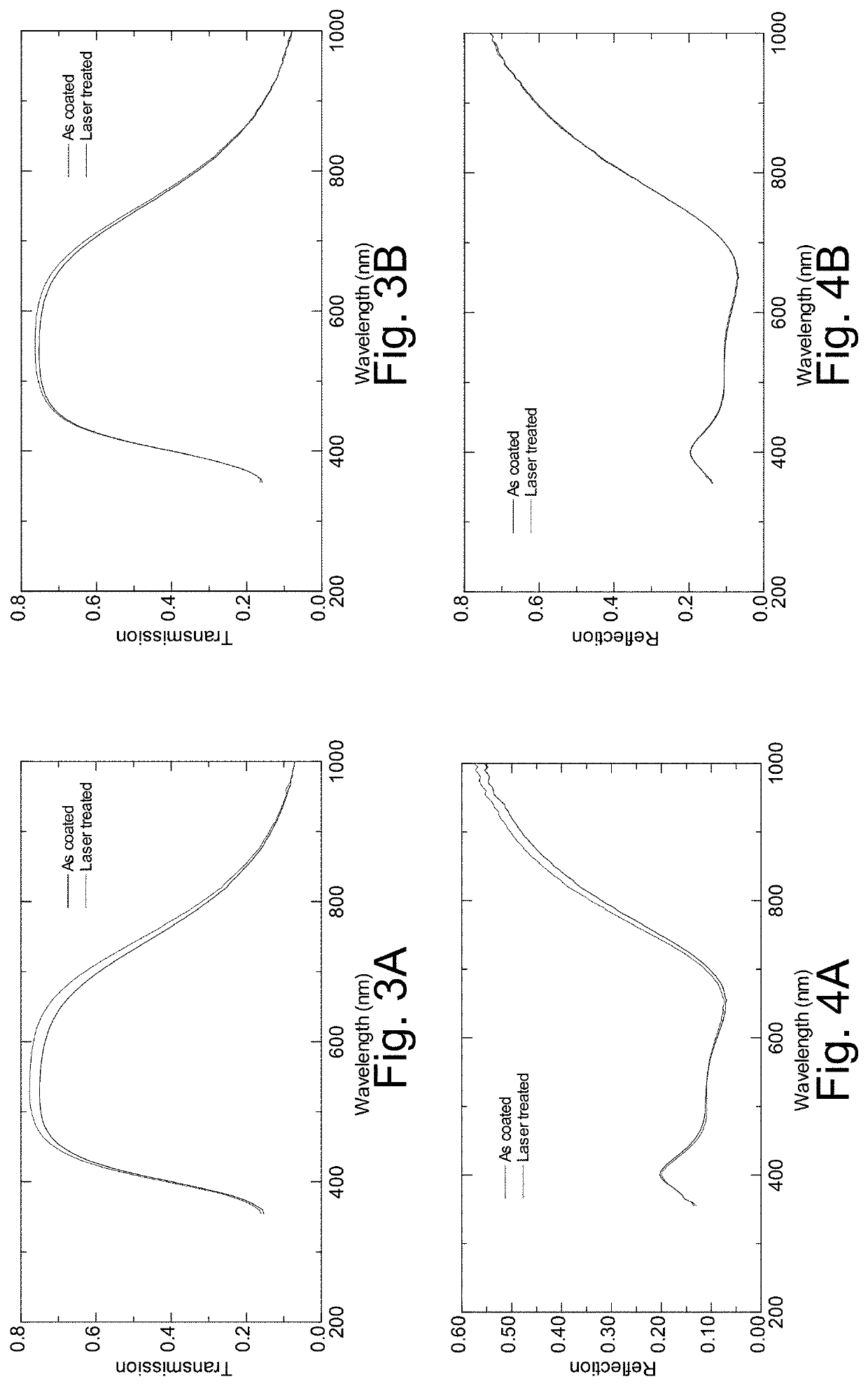Coated article including ultra-fast laser treated silver-inclusive layer in low-emissivity thin film coating, and/or method of making the same
a technology of low-emissivity thin film and coating article, which is applied in the direction of coating, parallel plane unit, door/window protective device, etc., can solve the problems of low sheet resistance, high cost, and oftentimes large concentration of various structural defects of films, so as to reduce the refractive index of each silver-based layer, reduce the vacancy, and increase the visible transmission of low-e coating
- Summary
- Abstract
- Description
- Claims
- Application Information
AI Technical Summary
Benefits of technology
Problems solved by technology
Method used
Image
Examples
Embodiment Construction
[0028]Certain example embodiments of this invention relate to ultra-fast laser treatment of silver-inclusive low-E coatings, coated articles including such coatings, and / or associated methods. The ultra-fast laser modification of thin films involves laser pulses of picosecond or sub-picosecond (e.g., 10−12 seconds or lower, more preferably on the order of 1s, 10s, or 100s of femtoseconds (and possibly lower)) durations, e.g., to improve the performance of the layer stack, particularly when such layer stacks include one or more silver-based layers. The laser modification is performed and likely causes at least some crystallization or re-crystallization of the silver in the silver-based layers. However, a perhaps more major driver of the silver-based layers' improvement relates to reorientation of grains and effects on grain boundaries. In this regard, the silver-based layers have an improved texture and are able to become denser and more bulk-like. In addition, the interface between ...
PUM
| Property | Measurement | Unit |
|---|---|---|
| emissivity | aaaaa | aaaaa |
| emissivity | aaaaa | aaaaa |
| temperatures | aaaaa | aaaaa |
Abstract
Description
Claims
Application Information
 Login to View More
Login to View More - R&D
- Intellectual Property
- Life Sciences
- Materials
- Tech Scout
- Unparalleled Data Quality
- Higher Quality Content
- 60% Fewer Hallucinations
Browse by: Latest US Patents, China's latest patents, Technical Efficacy Thesaurus, Application Domain, Technology Topic, Popular Technical Reports.
© 2025 PatSnap. All rights reserved.Legal|Privacy policy|Modern Slavery Act Transparency Statement|Sitemap|About US| Contact US: help@patsnap.com



